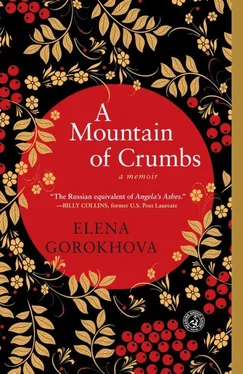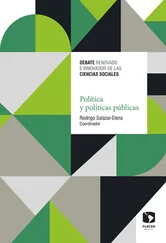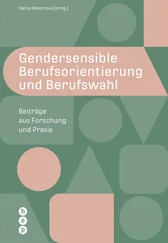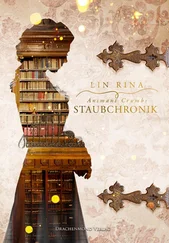My grandmother saw Ilya Antonovich’s proposal as an upward move. He had a well-paid, respectable position, and a stomach ulcer was not TB. It was a manageable illness, a small cloud with a silver lining: it prohibited alcohol.
My mother agreed, despite a prickle of guilt somewhere in the area of her heart, a sensation reminding her she didn’t feel the same fire as when she married her sick, alcoholic Sasha. But she was no longer daring or young: two defunct marriages and two wars and two brothers gone had dulled the edge of her enthusiasm and made her practical and prudent.
Leningrad was a true capital, Peter the Great’s “window on Europe.” It was the first big city she’d seen, with the baroque curves of the Kirov Opera and Ballet Theatre only two blocks from her new apartment. She liked walking from the streetcar stop to the medical school where she’d been hired to teach, past the eighteenth-century façades, past newspaper kiosks where Stalin’s face still had two more years to glare from the front page of every paper. She liked the pearly-gray domes of Smolny Cathedral, so much like the Leningrad sky; she liked the broad avenues of the city’s center and the mazes of its courtyards. She liked its grocery stores with their sawdust-covered floors and sweet smells of cheese, bologna, and sometimes even beef.
After the four hundred grams of war-rationed bread in Ivanovo, Leningrad seemed a gastronomic heaven. There were bread stores and milk stores and meat stores. Flour hung in the warm, fragrant air of bakeries; bricks of sour black bread shared counter space with loaves of white. On her dairy trip she brought a three-liter aluminum cistern to be filled with milk by an aproned woman behind the counter, and out of the three kinds of cheese, with the geopolitical names of Russian, Soviet, and Swiss, she would buy a kilo of Russian, the least expensive but the tastiest. There were stores brimming with sweets: cookies with patterns of spires resembling the new Moscow skyline, three kinds of sucking candy, glass counters full of su-shki , dry tiny bagels so hard they could break one’s tooth. There were even chocolate bars called “Soviet Builder” wrapped in silver foil that emerged invitingly from a paper sleeve with a picture of a muscular man brandishing a hammer.
My father provided what she’d craved, stability. But there was something else she wanted from this marriage, something that was as important as getting out of her hometown, something visceral and non-negotiable. Something my father dismissed as an impossibility. She was thirty-nine, too old to have another child, he said. And he was fourteen years older. If anyone saw him with an infant, they’d take him for a grandfather. Dedushka , they’d call to him, what a precious lovely grandchild you have.
My mother trotted out arguments, all in vain; then she simply stopped using contraceptives. She didn’t tell my father until she was four months pregnant. He flew into a rage and told her to have an abortion.
“It’s too late,” she said. “At this point it’s dangerous.”
“Have an abortion anyway,” he demanded in a high-pitched, unfamiliar voice, as if he hadn’t heard what she told him, as if she’d qualified someone else’s condition, not her own, as potentially life-threatening.
“I will not endanger my life,” she said sternly, enunciating every sound.
My father stopped speaking to her. She stopped speaking to him, too. She silently chopped beets for borsch, left a plate on the kitchen table and a pot under a warmer on the stove, and he silently ate and smoked his filterless cigarettes, immersing everything in the kitchen in sheets of smoke.
When she felt contractions and checked herself into a maternity ward, my father rang his driver, Volodya, and told him to drive to the hospital. Volodya, in his wrinkled brown suit, shiny in the back, had been waiting for this call, preceded by days of whispering among relatives and friends. Outside, the wet Baltic wind scoured the city, mopping cigarette stubs and used bus tickets into courtyards, rinsing linden branches in lukewarm air. On their way, they stopped by a metro station where a woman was selling flowers from a bucket—probably peonies, since it was the end of July—and with that bouquet, held like a whisk broom, my father marched into the hospital lobby, where a receptionist informed him that he was the father of a baby girl.
The announcement left him stunned, then livid. How could they, he thought. A girl! Turning on his heel, under the bewildered gaze of the whole reception area, he stormed out of the hospital with the peonies now clutched like a weapon in his fist. Not only did he have a baby—at his age—he had a baby girl! He got into the car and ordered Volodya to drive him out of the city, away from this double disgrace.
For six days he stayed at a friend’s dacha with his chauffeur, who drove him to Leningrad in the morning and back out of the city at night. Finally, yielding to pressure from his own daughter Galya, my mother’s surviving brother, and the friend whose dacha he used as a retreat, my father made an appearance at the hospital with a note for my mother. The receptionist folded the note and handed it to the nurse, who immediately delivered it to the third floor.
Don’t be upset, my father wrote. Girls are all right, too.
3. Vranyo, the Pretending
EAT YOUR SOUP, GOROKHOVA, or you’ll die!” shouts Aunt Polya over my head. She calls us all by our last names, and she is not really my aunt.
I am five, still a year and a half away from first grade, in a nursery school where thirty of us sit at three rectangular tables, pushed together at noon, and chew on buttered bread. It is 1961, and Yuri Gagarin, our Soviet hero, has just stepped out of his rocket that flew around Earth. Aunt Polya, in a stained apron stretched across her round stomach, holds a pitcher of milk and a thick-ribbed glass. The milk is warm, and the butter has absorbed all the rancid smells of the kitchen, but we eat and drink because we don’t want to get into trouble with Aunt Polya. We don’t want to hear her yell or see her aproned stomach loom over our faces.
Aunt Polya presides over the nursery school’s kitchen, which is behind the big peeling door we are forbidden to approach. I fear she could be in charge of more than buttering bread, pouring milk, and dispensing soup, more than ordering us to chew and swallow and not waste a single crumb. She could be in charge of our lives, since what keeps us breathing and healthy, according to Aunt Polya, is food.
“If you don’t finish your milk you’ll get sick!” she screams, now towering over my friend Genka, and I almost believe her.
After we eat, we crowd into the hallway, where our coats hang on hooks hammered into the wall. When we are all properly bundled up, we go down to the courtyard, to the sandbox and tall wooden slide. Genka and I are the only ones who, in the winter, dare coast down its iced surface standing up. The slide is in the middle of the playground, and we are herded there in pairs, in scratchy wool leggings and galoshes over felt valenki boots, our throats cinched with scarves and our waists with belts over padded coats. With all that cinching, it is difficult to stretch my arms out as I glide down, whipped by freezing air, hoping I won’t lose my balance and plop down onto what my mother calls my “soft spot” and what Genka calls my “ass.”
But now it’s late spring, a perfect time to explore the courtyard. We know there are vaulted hollows under the buildings—enticing, scary, and forbidden. While Raya, a girl with a red bow, wails over a collapsed sand castle that our teacher Zinaida Vasilievna is busy examining, Genka and I quietly creep out of the playground. We hide behind huge aluminum garbage bins and dive under an archway that leads through a damp tunnel to another courtyard separated from the street only by a metal fence. It is dizzying to think that we can simply walk through the gate and find ourselves on the sidewalk next to the street, so maligned by my mother for its dangerous streetcars and speeding trucks. But at the moment we are not interested in the risks the street can offer. We have just discovered a door under a dark archway, a rectangular sheet of wood upholstered in cracked black oilcloth that even Genka hesitates to touch.
Читать дальше












